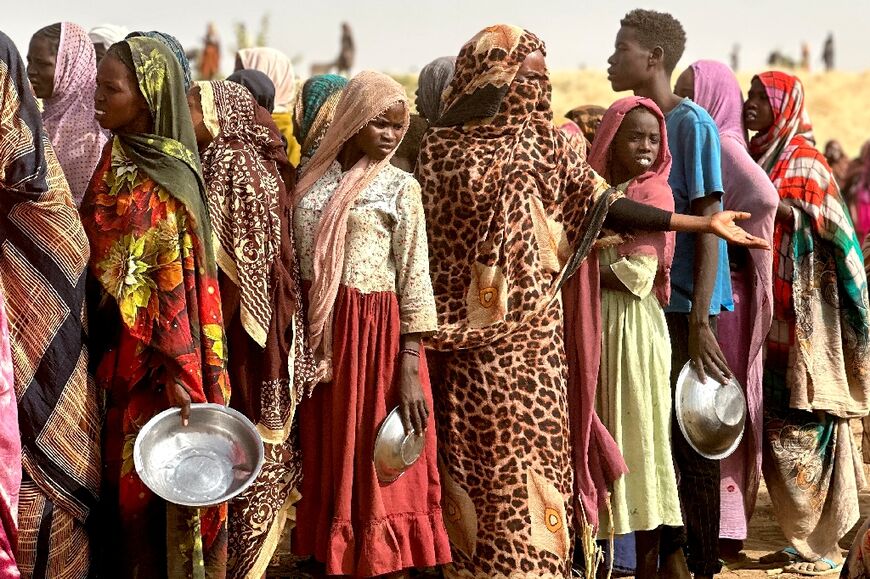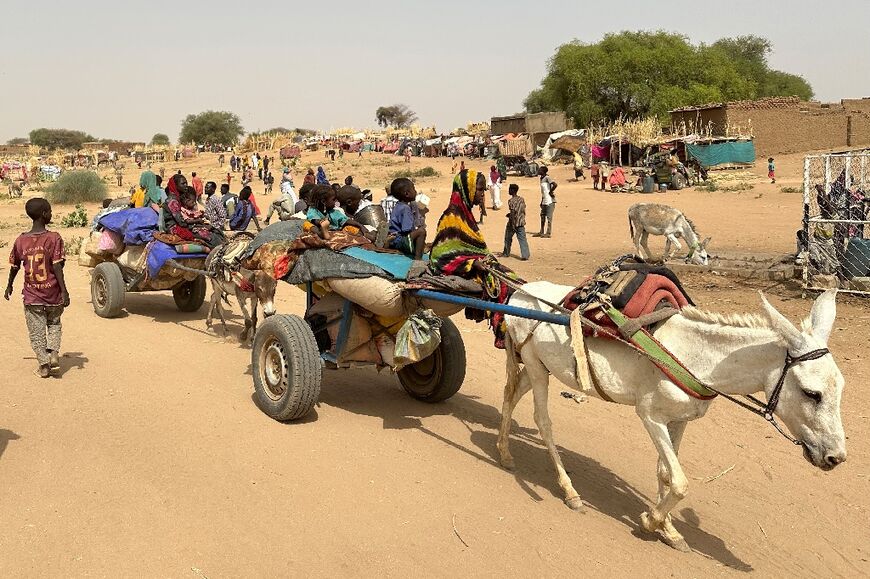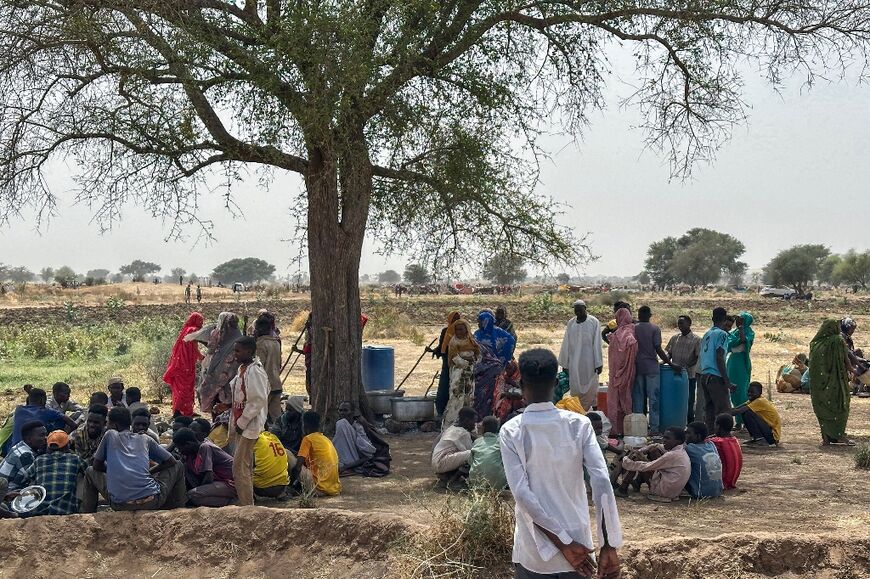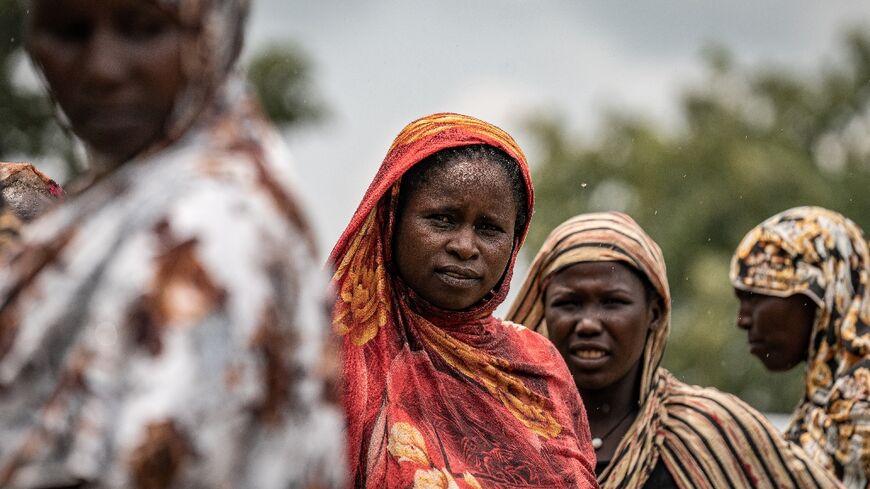'We just ran': survivors recount escape from famine-hit Sudan camp
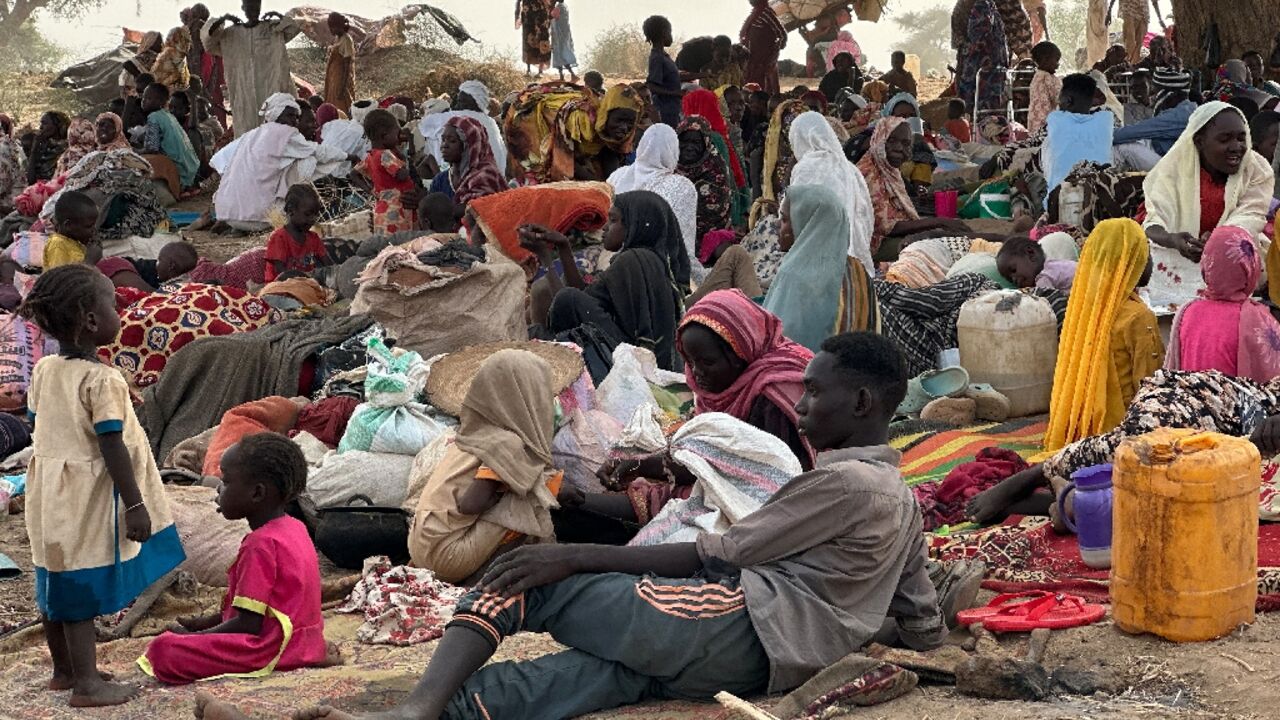
Amna Hussein didn't stop when the bullet hit her hand. She kept on running as paramilitaries attacked Zamzam displacement camp in Sudan's western Darfur region in the dead of night.
"They entered Zamzam and started shooting at us," she told AFP in the small town of Tawila, 60 kilometres (37 miles) west of the huge famine-stricken camp, which by Sunday had fallen to the Rapid Support Forces (RSF).
"I tied my hand with a cloth to stop the blood and we kept running," the 36-year-old said, her hand swollen and body weak after a three-day trek on foot.
The United Nations says more than 400 people have been killed and around 400,000 people displaced since the RSF on Friday began attacking Zamzam, where aid sources estimate up to a million people were sheltering.
The lucky ones like Hussein made it to Tawila, despite barely any aid available there. The fighters did not pursue them.
Ibrahim Essa, a 43-year-old father of six, didn't think he would make it out.
"We tried to leave on the first day, but RSF fighters blocked the roads and fired artillery at us," he told AFP from underneath the dead tree his family now uses for shelter.
Since war erupted between the regular Sudanese army and the RSF two years ago, Darfur has seen some of the worst violence, with entire villages and camps torched.
- Systematic destruction -
Yale University's Humanitarian Research Lab (Yale HRL), which uses remote sensing data to track the conflict, confirms that the RSF now controls the sprawling camp.
"Zamzam camp is now being systematically destroyed by fire from intentional arson by RSF forces," it reported Monday, a day after the RSF claimed it had "liberated" the area.
The camp lies just south of North Darfur state capital El-Fasher, the only major city in the vast western region not conquered by the RSF.
The UN and international leaders have for nearly a year warned against a full-scale attack on Zamzam and El-Fasher, with fears of ethnically motivated massacres such as those the RSF committed elsewhere in Darfur.
According to the Yale HRL, the RSF has positioned a 200 vehicle-strong force inside Zamzam, indicating "an imminent large-scale assault on El-Fasher city itself".
The RSF has besieged El-Fasher since last May, but has been unable to defeat the army and its allied militias known as the Joint Forces.
After the army retook the capital Khartoum 1,000 kilometres to the east last month, the RSF intensified its attacks in a final push to claim all of Darfur.
- 'Die together in Zamzam' -
Although the Joint Forces have for months intercepted RSF supply lines, experts warn a full-scale attack could overcome their defences.
Several survivors from Zamzam told AFP they were stopped by Joint Forces fighters who urged them not to flee.
"They told us: 'Don't leave. We will all die together in Zamzam," said one survivor who gave her name as Nasha.
When the fighting intensified, she took her children and ran for Tawila, arriving three days later.
"Now we're sitting in the dirt with no blankets, no mattresses, not even proper clothes," she told AFP.
Behind her, hundreds of families huddled under scattered trees, nothing to their name but the clothes they fled in.
On Monday, medical charity Doctors Without Borders said its small team in Tawila reported 10,000 displaced people arriving in under two days.
Little aid is available in Tawila, where people displaced from other parts of North Darfur have slept on the ground for months.
An AFP journalist saw a steady stream of exhausted families pour in, some clinging to overcrowded trucks or jolting slowly along in wooden donkey carts piled high with children.
"After we arrived in Tawila, aid workers gave us water and dates. But I was already very sick," Nasha said.
"I collapsed and fainted from thirst and the heat."
On Tuesday, Sudan's war entered its third year with no hope of respite.
Tens of thousands have been killed, including up to 15,000 in ethnically motivated massacres by the RSF and allied militias in the West Darfur town of El-Geneina alone, a UN panel said.
Thirteen million more have been uprooted and eight million are on the brink of famine, in what the UN calls the world's largest hunger and displacement crises.
An independent UN fact-finding mission warned Monday that "the darkest chapters of this conflict have yet to unfold", citing rising ethnic violence and retaliation nationwide.


